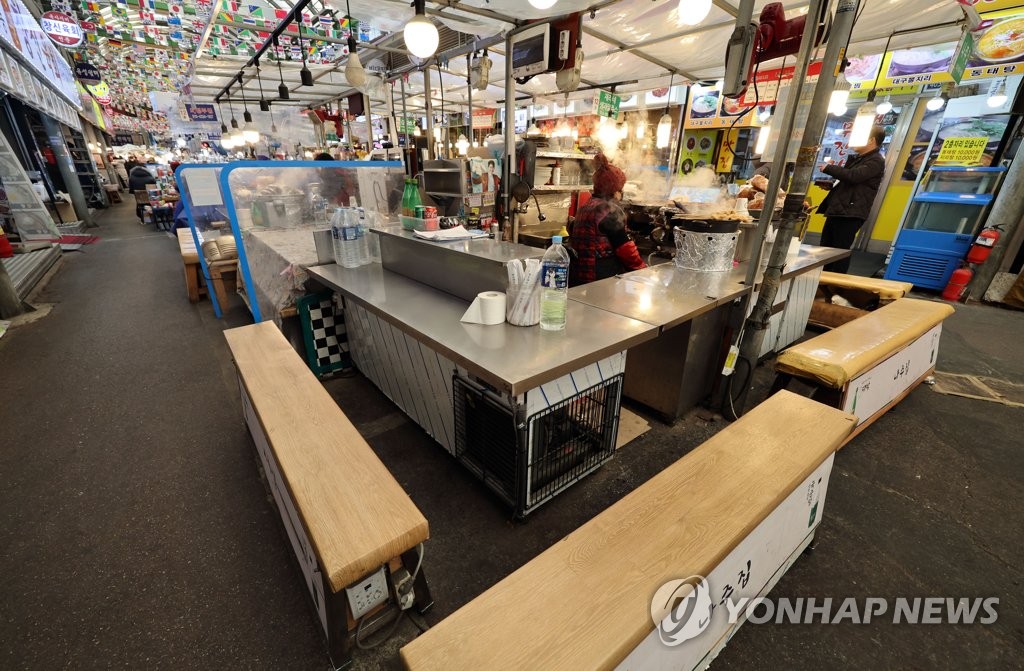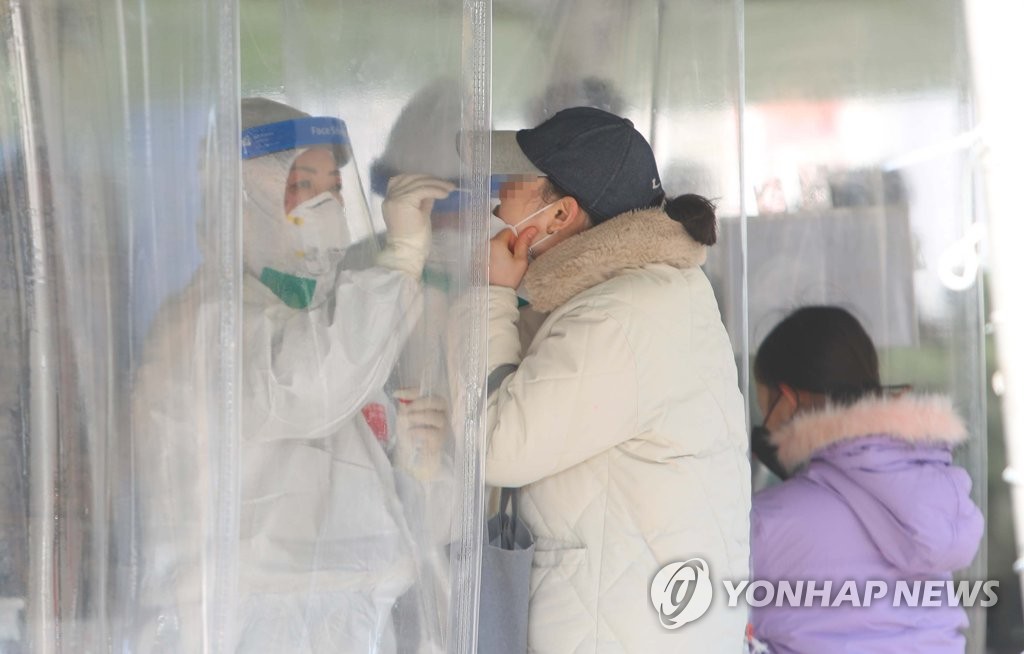- California Assembly OKs highest minimum wage in nation
- S. Korea unveils first graphic cigarette warnings
- US joins with South Korea, Japan in bid to deter North Korea
- LPGA golfer Chun In-gee finally back in action
- S. Korea won’t be top seed in final World Cup qualification round
- US men’s soccer misses 2nd straight Olympics
- US back on track in qualifying with 4-0 win over Guatemala
- High-intensity workout injuries spawn cottage industry
- CDC expands range of Zika mosquitoes into parts of Northeast
- Who knew? ‘The Walking Dead’ is helping families connect
Daily cases over 6,000 for 2nd day amid omicron woes
South Korea’s daily coronavirus cases stayed over 6,000 for a second straight day Friday amid concerns over the spread of the omicron variant ahead of the Lunar New Year holiday.
The country added 6,769 new COVID-19 infections, including 6,482 local infections, raising the total caseload to 719,269, according to the Korea Disease Control and Prevention Agency (KDCA).



These composite file photos, taken Jan. 21, 2020 (L), and Jan. 21, 2022, show the duty-free shop area of the No. 1 Terminal at the Incheon International Airport to compare the number of passengers. (Yonhap)
The daily caseload slightly increased from 6,602 on Thursday, when it jumped to over 6,000 for the first time in 27 days after staying below 6,000 since Dec. 24.
The number of critically ill COVID-19 patients stood at 431 on Friday. The country reported 21 COVID-19 deaths, raising the death toll to 6,501. The fatality rate was 0.90 percent.
The number of imported cases was tallied at 287, bringing the total imported cases to 22,836.
As of 6 p.m., the country had added 4,552 new COVID-19 cases, up 53 from the same time the previous day, according to health authorities and city governments. Daily cases are counted until midnight and announced the following morning.
Health authorities are on high alert over a possible spike in infections as many people travel for family reunions during the Lunar New Year holiday that begins late this month.
The KDCA said the detection rate of the omicron variant reached 47.1 percent this week and omicron will become the dominant strain next week.
Daily cases remain high as the KDCA on Tuesday lifted the vaccine pass program at several kinds of multiuse facilities, including department stores, large discount stores, cinemas and cram schools, across the country.
Still, the vaccine pass scheme remains in effect at such facilities as cafes, restaurants, nightclubs, indoor gyms, karaoke establishments, internet cafes and public bathhouses, the public health agency said.
The program requires people to present proof of COVID-19 vaccination or negative test results when entering multiuse facilities. It has been in effect since November, when the number of daily infections soared to nearly 8,000.
On Monday, the government raised the limit on the size of private gatherings to six from the previous four. But it extended a 9 p.m. curfew on restaurants and cafes, which has been in place since mid-December, for another three weeks until Feb. 6.
The move came amid deepening worries over a drastic upsurge in infections as the highly transmissible omicron variant has spread at a fast pace and many people are expected to travel for family reunions during the Lunar New Year holiday that begins later this month.
As of Friday, 43.72 million people, or 85.2 percent of the country’s 52 million population, have been fully vaccinated, and 24.5 million, or 47.7 percent, have received booster shots, the KDCA said.











